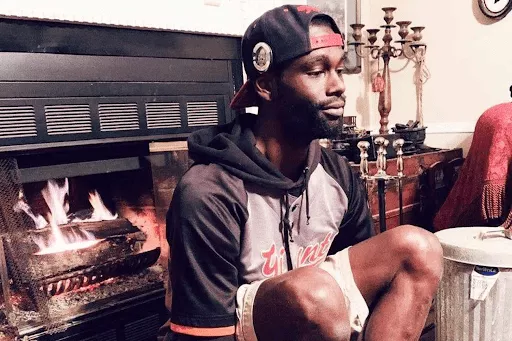Tyré Nichols’s Killing Has Everything to Do With Race
“That Black officers can also be the face of police brutality against Black people doesn’t disprove the racism at the institution’s core,” writes Ieshaah Murphy.

This piece is a commentary, part of The Appeal’s collection of opinion and analysis.
Five Black police officers brutally beat Tyré Nichols, a 29-year-old Black man, to death in Memphis earlier this month. It started with a traffic stop. Tyré was unarmed. He was outnumbered. For Black people, this story is all too familiar. Tyré’s family is living the nightmare that Black parents everywhere fear might befall their children in a country that has shown over and over that Black lives don’t matter.
As the nation demands an explanation for yet another senseless police killing, Memphis Police Chief Cerelyn Davis, who is Black, said in a recent NBC News segment that the involvement of Black officers “takes race off the table” as a contributing factor in Tyré’s death. Other commentators have made similar claims, arguing that the race of the officers necessitates a more nuanced conversation about policing culture and violence—somehow separate from discussions about racism within police forces.
But this case has everything to do with race. That Black officers can also be the face of police brutality against Black people doesn’t disprove the racism at the institution’s core. It only reveals a system of policing so deeply defined by anti-Black racism that even Black officers can find themselves actively perpetuating it.
This phenomenon isn’t new, but it is centuries in the making. Modern-day police forces were born in part from patrols of enslaved people. The Memphis Police Department reflects these origins: The first official report of an officer killed on duty dates back to 1860, when a patrolman was fatally stabbed by a white man while trying to arrest a Black man whom he believed to be a fugitive from slavery. After the end of slavery (still legal today as punishment for those convicted of a crime), these groups became militia-style posses who enforced Black codes and denied rights to “free” Black people. In the post-Civil War era, the Memphis Police Department was heavily involved in efforts to suppress so-called “race riots” triggered by confrontations between white residents and Black Union soldiers garrisoned in the city.
Today, police forces all over America continue to target, abuse and inflict harm upon people in Black communities. The strength, longevity, and power of this racist system are, in many ways, a function of its ability to mask its racism and to convince Black people that they will be protected as equals, so long as they play by the rules.
Whether fueled by this desire to be equal—or perhaps by self-hatred or self-preservation—Black people are sometimes active participants in practices that harm other Black people. We don’t know why each of these Black officers decided to join the Memphis police force. Despite walking through the world as Black men in America, we know that each of them believed that they had the power, the right, and the backing of the Memphis Police Department to brutally beat Tyré Nichols on camera. They believed their identity as officers would trump their identity as Black men.
We didn’t need this case to show that Black officers were just as capable as white officers of committing atrocities against Black bodies. All police officers operate within a system built to control and oppress Black people. In their attempt to prove themselves, Black officers can sometimes be more violent than their white colleagues. For every white officer who polices Black communities with hatred and hostility, countless officers of all races protect him. They cover for him when he breaks the rules, back him up when he’s in the wrong, and laugh with him at the bar after their shift.
Black faces within a racist system do not change the racist nature of the system.
Take the District of Columbia. Walk into D.C. Superior Court and you will see far more Black prosecutors, Black judges, Black police officers, and Black marshals than in many other places around the country.
But the Black representation in these positions of power has had little effect on the racial disproportionality of those involved in D.C.’s criminal legal system. While Black people make up less than half of the city’s population, over 90 percent of those incarcerated at its jail are Black. As a public defender, I represented hundreds of adults and children over nearly a decade. Just four of my clients were white—all of them adults. This is not accidental. It is the product of a system of over-policing that stops, searches and arrests Black people at significantly higher rates than white residents. And, as any D.C. public defender will attest, this ultimately results in harsher plea offers and more extreme sentences for Black people compared to white people charged with similar offenses.
The continued refusal to frame police violence as a deliberate, inextricable feature of this racist system has made it easier to throw hollow solutions at the problem.
Diversifying the police force is not the answer. Bias training is not the answer. To solve this issue, we must begin reimagining new approaches to public safety that can protect everyone, including Black people. Tyré Nichols—a father, son, brother, and friend who mattered and was loved deeply—was the latest victim of a racist system. He sadly won’t be the last unless we tear down that system.
Ieshaah Murphy is an Assistant Professor of Law and Director of the Criminal Law Clinic at the University of the District of Columbia (UDC), David A. Clarke School of Law.
